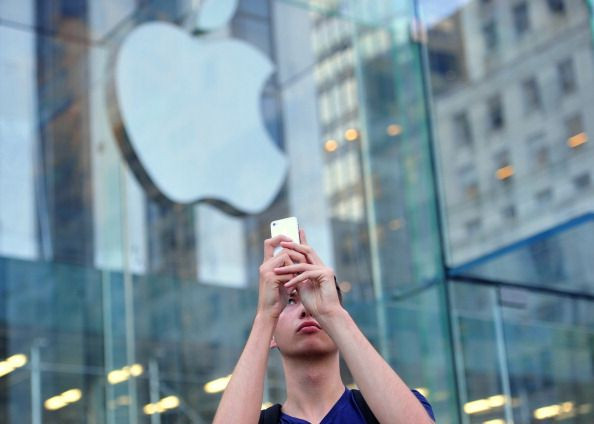This Might Be the Real Reason Apple's Not Launching A 5G iPhone Until 2020
Apple (NASDAQ:AAPL) isn't likely to be among the first companies to introduce a smartphone with 5G wireless capability.
On Dec. 3, Bloomberg reported that Apple "plans to hold off until at least 2020 before offering an iPhone that can connect to the next generation of high-speed phone services coming next year," referring to 5G connectivity.
This article originally in the Motely Fool
The report also went on to say that "[the] decision to sit on the sidelines may be related to the company's feud with Qualcomm (NASDAQ:QCOM) Inc., the leader in 5G-enabled chips, and its alliance instead with Intel (NASDAQ:INTC) Corp., which won't have chips available in time to support 2019 iPhones."
Intel recently announced that its first commercial-grade 5G modem, known as the XMM 8160, "is expected to ship in the second half of 2019" and that devices incorporating that modem "are expected to be available in the first half of 2020."
While it may be tempting to blame the acrimonious relationship between Apple and Qualcomm for Apple's later adoption of 5G technology compared to its peers, I think that blame is misdirected. Here's why.
Marketing versus user experience
Last month, Fast Company reported that Apple planned to use Intel's XMM 8161 5G modem (this could be a variant of the XMM 8160 or the publication may have just gotten the name slightly wrong) in its 2020 iPhone lineup.
Now, the publication also indicated that Apple is using Intel's first-generation XMM 8060 5G modem -- a part that Intel recently indicated would be relegated for use as a "development platform" in slides distributed to the press -- for "prototyping and testing the 5G iPhone."
Apple is apparently facing "heat dissipation issues caused by the 8060 modem chip."
This might lead one to conclude that Apple's eschewing of Qualcomm modems in favor of Intel's is hamstringing Apple's ability to bring a 5G iPhone to market. However, the Fast Company report also claims that Qualcomm's own first-generation 5G modem, known as the Snapdragon X50, "has also created heat dissipation problems for other smartphone OEMs developing smartphones that support millimeter wave 5G."
In other words, Apple may simply not think that it makes sense from a user experience perspective (read: battery life) to implement 5G capability in the iPhones that it'll likely introduce in the second half of 2019.
Apple will need to innovate elsewhere
Bloomberg pointed out that "[in] the past, it hasn't been a problem for the Cupertino, California-based company to wait a year after much of its competition to release phones compatible with the latest wireless networks."
However, the publication wrote that "going into 2019, the stakes have changed: the leap from 4G to 5G is significant enough that it may become a major selling point for new devices."
If that turns out to be the case, then Apple will need to be sure to heavily market all of the other advances that it delivers in its 2019 iPhone lineup so that consumers don't view the lack of 5G capability as a deal-breaker.
Then, in 2020, once Apple does introduce 5G-capable iPhones, I have no doubt that the company will be sure to talk up the virtues of having a 5G-capable smartphone, particularly as there will be a very large installed base of non-5G capable iPhone users that the company will want to get buying its latest devices.
Should Apple be on your buy list? It's on ours...
Motley Fool co-founders Tom and David Gardner have spent more than a decade beating the market. In fact, the newsletter they run, Motley Fool Stock Advisor, has tripled the S&P!*
Tom and David just revealed their ten top stock picks for investors to buy right now. Apple made the list -- but there are 9 other stocks you may be overlooking.
Ashraf Eassa owns shares of Qualcomm. The Motley Fool owns shares of and recommends Apple. The Motley Fool owns shares of Qualcomm and has the following options: long January 2020 $150 calls on Apple and short January 2020 $155 calls on Apple. The Motley Fool has a disclosure policy.






















